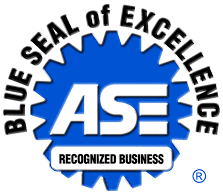 Trust us to take care service needs for your vehicle.
Trust us to take care service needs for your vehicle.
Here are some tips to keep repairs to a minimum.
The following tips should help you along the way
- Do your homework before taking your vehicle in for repairs or services.
- Read the owner’s manual to learn about the vehicle’s systems and components.
- Follow the recommended service schedules.
- Keep a log of all repairs and services.
When you think about it, you know your car better than anyone else.
- You drive it every day and know how it feels and sounds when everything is right, so don’t ignore its
warning signals.
Use all of your senses to inspect your car frequently. Check for:
- Unusual sounds, odors, drips, leaks, smoke, warning lights, gauge readings.
- Changes in acceleration, engine performance, gas mileage, fluid levels.
- Worn tires, belts, hoses.
- Problems in handling, braking, steering, vibrations.
- Note when the problem occurs.
- Is it constant or periodic?
- When the vehicle is cold or after the engine has warmed up?
- At all speeds? Only under acceleration? During braking? When shifting?
- When did the problem first start?
Once you are at our location, communicate your findings.
- Be prepared to describe the symptoms.
- Carry a written list of the symptoms that you can give us.
Stay involved…ask questions.
- Ask as many questions as you need.
- Before you leave, be sure you understand all shop policies regarding labor rates and acceptable methods of payment.
- Leave a telephone number where you can be reached.
The following simple and inexpensive preventative checks will greatly extend the life of your vehicle and ensure safer operation.
- Always consult your owner’s manual for individual service schedules because maintenance requirements vary by manufacturer, make, year and model.
- Always consult your owner’s manual, but a good rule of thumb is to have the engine oil and oil filter changed regularly – every 5,000 miles.
- Have all fluids checked, including brake, power steering, windshield washer solvent and antifreeze.
- These fluids play a large role in the safety and performance of the vehicle.
- Check tire inflation. Under-inflated tires can result in a loss of fuel efficiency. This is the least expensive form of preventive and safety maintenance. A good rule of thumb is to have tire inflation checked once a week.
- Keep your engine tuned. A fouled spark plug, dirty air filter or restricted / plugged fuel injector can reduce fuel efficiency.
- Check battery cables and posts for corrosion and clean them as needed.
- Have the lighting system checked frequently, including headlights, turn signals, brake and taillights.
- Check windshield washer blades for cracks, tears and windshield contact. Replace them at least once a year, or sooner if streaking begins.
- Inspect engine belts regularly. Worn belts will affect the engine performance. Look for cracks and missing sections or segments.
- Have the engine and cabin filtration systems checked frequently. This system ensures that the vehicle is performing at its peak condition.
- Always consult your owner’s manual, but a good rule of thumb is to have the air cabin filter replaced every year or 10,000 miles.
Call us today to get an estimate on your next service at (858) 530-2886.
 Trust us to take care service needs for your vehicle.
Trust us to take care service needs for your vehicle.